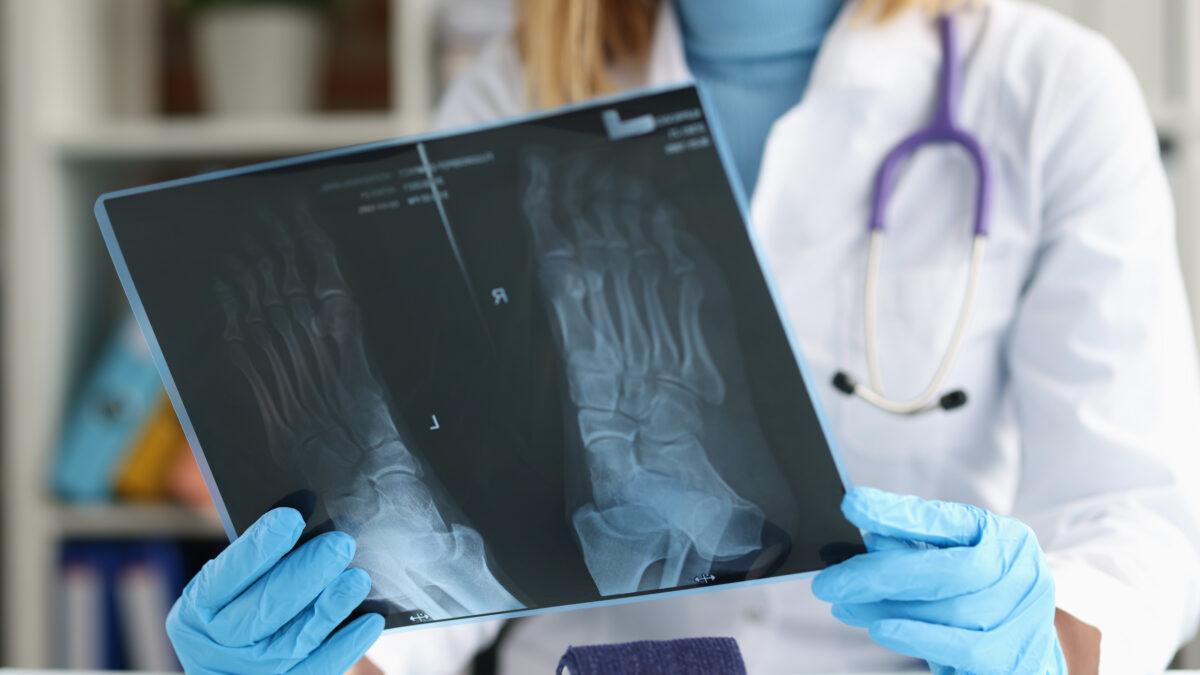
Can Plantar Fasciitis Cause Thigh Pain?
February 15, 2023
How to Find the Best Arthritis Specialist Near Me?
May 17, 2023How to find the right bone specialist doctor near me? Finding the right bone specialist is crucial in addressing your orthopedic needs and maintaining your overall health. Navigating the process may feel overwhelming, but this guide will walk you through the steps to find the perfect fit for you. By understanding the importance of a bone specialist, identifying your specific needs, researching potential specialists, scheduling consultations, and evaluating costs and insurance coverage, you can ensure that you receive the best care possible. Center for Specialty Care is here to help you.
Finding the Right Bone Specialist Doctor Near Me: Understanding the Importance of a Bone Specialist
A bone specialist, also known as an orthopedic surgeon or orthopedist, is a medical professional who specializes in diagnosing and treating disorders of the musculoskeletal system. Their expertise is essential in managing and treating a variety of conditions that can impact your mobility, daily activities, and overall quality of life.

What is a Bone Specialist?
Bone specialists are highly trained medical professionals who specialize in the diagnosis, treatment, and prevention of diseases and injuries affecting the bones, joints, muscles, tendons, ligaments, and other related structures. They are experts in their field and have extensive knowledge of the musculoskeletal system, enabling them to provide the best possible care to their patients.
Orthopedic surgeons are trained to address conditions through both surgical and non-surgical methods, depending on the severity and nature of the issue. They may also specialize in specific areas, such as sports medicine, spine, or pediatrics, allowing them to provide specialized care to their patients.
Common Conditions Treated by Bone Specialists
Bone specialists treat a broad range of conditions, from acute injuries to chronic conditions. They are experts in treating fractures, sprains, strains, dislocations, and repetitive stress injuries like carpal tunnel syndrome or tendonitis. They also manage chronic issues such as arthritis, osteoporosis, scoliosis, and various types of bone and soft tissue tumors. In some cases, bone specialists may assist with joint replacement surgeries or complex reconstructive procedures.
Regardless of the condition, bone specialists work closely with their patients to develop personalized care plans that address their specific needs. They may also collaborate with other healthcare providers, such as physical therapists or primary care physicians, to ensure that their patients receive the best possible care. Our team is here to work with you to create a personalized treatment plan.
The Role of a Bone Specialist in Orthopedic Care
A bone specialist plays a pivotal role in optimizing your orthopedic care by offering comprehensive treatment options and developing personalized care plans. Their expertise ensures that you receive timely and accurate diagnoses, as well as appropriate interventions to address your specific needs.
Bone specialists are also skilled at managing complex cases that require multiple interventions, such as surgery, physical therapy, and medication management. They work closely with other healthcare providers to coordinate your care and ensure the best possible outcome.
Overall, bone specialists are essential in managing and treating a variety of conditions that can impact your mobility, daily activities, and overall quality of life. If you are experiencing pain or discomfort in your bones, joints, or muscles, it is important to seek the care of a bone specialist to receive the best possible treatment and care.

Identifying Your Specific Needs
In order to find the right bone specialist for you, it’s essential to identify your unique needs and preferences. This involves assessing your symptoms and condition, determining the level of specialization required, and considering your lifestyle and activity level.
Assessing Your Symptoms and Condition
Before searching for a bone specialist, take some time to evaluate the nature and severity of your symptoms. This information will help you determine the type of specialist required and guide your research. Consider factors like the onset of your symptoms, any related injuries or trauma, and how your symptoms impact your daily activities.
Determining the Level of Specialization Required
Some orthopedic conditions may require a specialist with a specific area of expertise. For instance, if you are dealing with a sports-related injury, you may benefit from seeking a bone specialist who specializes in sports medicine. Similarly, if you have a complex spine issue or a pediatric orthopedic condition, it’s essential to find a specialist with the appropriate training and experience.
Considering Your Lifestyle and Activity Level
Your lifestyle and activity level can also play a role in determining the best bone specialist for you. If you are an athlete or lead an active lifestyle, you may require a different approach to treatment than someone with a more sedentary lifestyle. Identifying your goals and preferences can aid in finding a specialist who aligns with your needs and supports your long-term health and wellness.
Researching Potential Bone Specialists
Once you have identified your specific needs, the next step is to start researching potential bone specialists. This process involves gathering recommendations and referrals, evaluating online reviews and testimonials, and verifying credentials and experience. Check out our 5-star Ratings and testimonials.
Corey Welchlin
Corey T. Welchlin, a board-certified orthopedic surgeon and sports medicine specialist, offers sports physicals and is a leading figure in the southern Minnesota and northern Iowa healthcare community. With a national reputation among orthopedic surgeons, he conducts advanced orthopedic surgeries, like those taught in top teaching hospitals, and provides trauma coverage and surgical services at numerous local hospitals.
Julie Dodds
The Center for Specialty Care is delighted to have Dr. Julie A. Dodds join our orthopedic team. As a board-certified and fellowship-trained orthopedic surgeon, Dr. Dodds specializes in Arthroscopy and Sports Medicine. With her expertise, she brings valuable insights and advanced techniques to our practice, further enhancing our commitment to providing exceptional patient care.
Scheduling Consultations and Interviews
Before making a final decision, it’s essential to schedule consultations and interviews with potential bone specialists. This allows you the opportunity to ask questions, assess their communication and bedside manner, and discuss potential treatment options and plans. Schedule a consultation at the Center for Specialty Care today.
Preparing Questions for Your Bone Specialist
Before your consultation, prepare a list of questions to ask your bone specialist. This can help you determine if they are a good fit and set realistic expectations about their approach to your care. Some topics to cover include their experience treating similar conditions, their approach to developing treatment plans, and how they will address any potential complications.
Discussing Treatment Options and Plans
During your consultation, discuss potential treatment options and plans with your prospective bone specialist. This can help you gain a better understanding of their approach to your care and ensure that your treatment aligns with your goals, preferences, and lifestyle. Also, be sure to inquire about any potential risks or complications related to your treatment, as well as expected recovery times and long-term outcomes.
Evaluating Costs and Insurance Coverage
Cost and insurance coverage are important considerations when selecting a bone specialist. Ensuring that you understand the potential expenses associated with your care can help you make an informed decision and prevent financial stress. Center for Specialty Care works with many common insurance companies.
Navigating Insurance Coverage and Out-of-Pocket Expenses
Before scheduling appointments or procedures, consult with your insurance provider to determine your coverage for bone specialist services. It’s essential to understand any potential out-of-pocket expenses you may be responsible for. Some providers may require a referral from your primary care physician, while others may have specific in-network specialists that you must choose from.
Exploring Payment Plans and Financial Assistance Options
If you are concerned about the costs associated with bone specialist services, inquire about any available payment plans or financial assistance options. Many providers offer flexible financing options to help patients manage their healthcare costs more effectively. Additionally, some charitable organizations and government programs may provide support to qualifying individuals.
By following this guide and carefully considering each aspect of the selection process, you can confidently choose the right bone specialist to address your needs and support your journey toward improved health and well-being.
To learn more about Orthopedics, visit The American Academy of Orthopedic Surgeons.
How do I find a bone specialist doctor near me?
You can find a bone specialist near you by:
– Using online directories like Healthgrades, Zocdoc, or Google Maps.
– Asking for referrals from your primary care physician.
– Checking your health insurance provider’s directory for covered specialists in your area.
– Visiting local hospital websites to see their orthopedic departments.
What conditions do bone specialists treat?
Bone specialists treat a wide range of conditions, including:
– Fractures and dislocations.
– Osteoarthritis and rheumatoid arthritis.
– Osteoporosis.
– Spine disorders like herniated discs or scoliosis.
– Joint pain and injuries (e.g., knees, hips, shoulders).
– Carpal tunnel syndrome and other repetitive motion injuries.
Can bone specialists perform surgery?
Yes, orthopedic doctors can perform surgeries if necessary. Common procedures include joint replacements (e.g., knee or hip), fracture repairs, spinal surgeries, and arthroscopy for joint issues. However, they often explore non-surgical options first.




